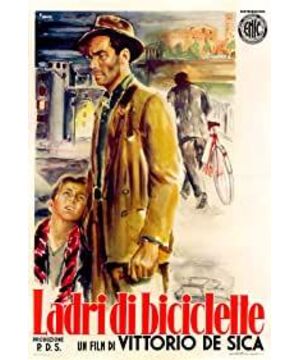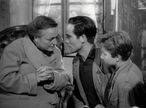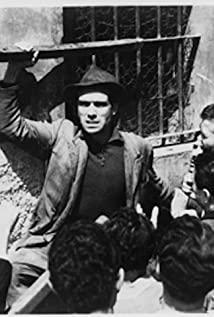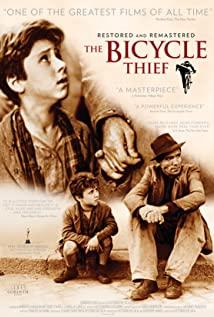The events seem to be loose, but they are actually rigorous in structure. All the details (as ransom, fortune-telling) not only show the life of the Romans in Italy during that period, but also shape the image and directly participate in the narrative. Material scarcity directly leads to spiritual emptiness, and the hopelessness of life has spawned a large number of people who rely on the so-called providence to survive. Everyone's actions have their own reasonable reasons. There are fat friends who are enthusiastic to help Dad find a car. Of course, there are also old people who are good at calculating and protecting themselves in the cruel reality and villagers who protect the short-term in the neighborhood. Desica has not done too much. Criticism of good and evil may also be a choice made to ensure emotional coherence.
Immersed in the hopeless anxiety of father and son looking for a car, it is still impossible to let people not pay attention to Desica's efficient transitions and editing. When sheets and redemption bikes, use a small window for transitions. The ending is a climax, and the character's negativity reaches its peak. The shouts of the stadium in the distance came one after another, and the son was sitting on the ground exhausted, further pressing the character to commit a crime. From the subjective point of view, the bicycle is seen, and the face is picked up. The subjective point of view sees the bicycle again, and then the face is connected, and then the crowd in the stadium is spliced. This set of parallel editing effectively conveys the father's thoughts and inner hesitation and struggle. Survival pressure, father's dignity, crime risk... The complex and tangled emotions give people a strong sense of substitution. The person who has stolen the bicycle ends up stealing the bicycle. A person who is driven to a desperate situation by poverty will overwhelm other people or become a prisoner of class. The theme rises from the tragedy of a person and a family to a social tragedy.
View more about Bicycle Thieves reviews











